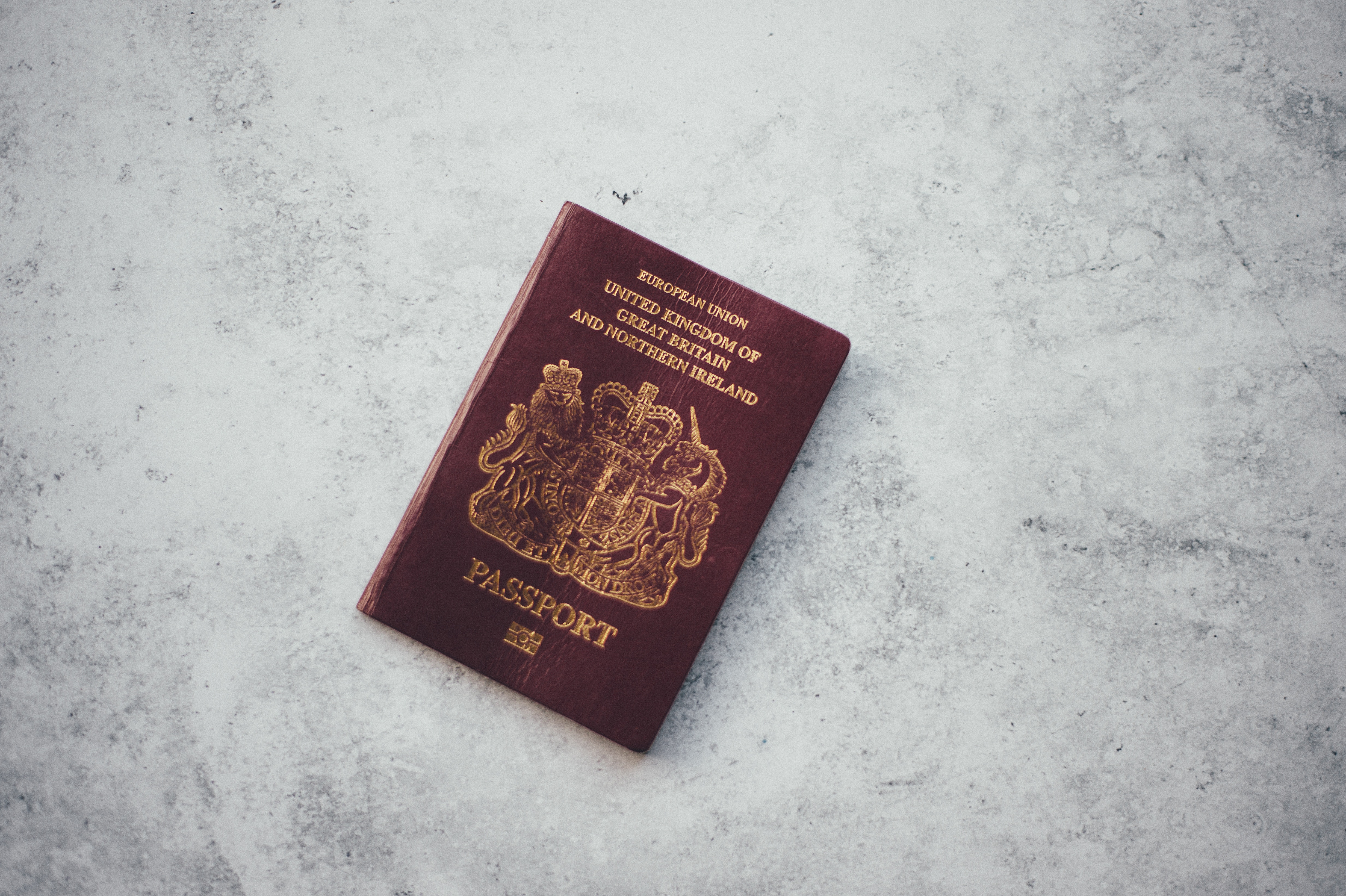For most students, the transition from secondary school to post-secondary studies is a huge adjustment. For international students, it’s a major life change.
One newcomer to Canada will win a life-changing grand prize. Enter now at Canada’s Luckiest Newcomer.
Not only are you starting the next phase of your educational journey, you’re also doing it in a brand-new country. While this is an exciting opportunity, if you’re feeling a little overwhelmed about the idea of studying abroad, don’t worry – we get it.
That’s why we’ve broken down the process into this handy checklist. Before you arrive on campus, here’s everything you need to have to study in Canada.
1. Acceptance Letter

You know that email that starts with CONGRATULATIONS– that means you’ve made it in? Make sure you print it. When you apply for your study permit (more about that later), you will need to show Citizenship and Immigration Canada (CIC) “proof of acceptance” and your original acceptance letter is exactly that. You will also need to include your application form.
2. Government ID

While we know you know that you can’t travel internationally without a passport, it’s not the only form of government ID that you’ll need to bring with you. You should also bring other proof of identification like a driver’s license or insurance card from your home country.
Additionally, before you book that one-way ticket, double-check the expiration date on your passport. It needs to be valid for a minimum of six months and if possible, for the duration of your study period as a study permit cannot be issued beyond the validity of your passport.
If you do need to renew your passport, make sure you apply as soon as possible to avoid being without a passport at the start of your term. Processing times vary from country to country but can often take six weeks or more. If you wait until you’ve arrived to renew, you’ll have to face boring embassy visits, line-ups and even more form-filling than usual – the last things you want to deal with when you’re starting school.
3. Funds for Living Expenses
![]()
When it comes to your finances, it’s essential that you have money that is safe and accessible for the duration of your studies. In order to be approved for your student visa (next up, promise!) you need to show proof of financial support, which are basically documents that prove you can support yourself while you’re living in Canada. International students studying outside of Quebec are required to prove a minimum amount of $10,000, additional to the tuition paid. In Quebec, it’s $11,000.
A common way to demonstrating approved financing that you may have heard of before is by getting a $10,000 Guaranteed Investment Certificate or GIC. GICs can help you meet the requirements of the Citizenship and Immigration Canada guidelines faster by showing proof of funds – and provide you with access to money to help pay for living expenses while you’re studying in Canada. The separate guidelines are called SDS (Study Direct Stream) which help students get approved easier and faster.
The Canadian Imperial Bank of Commerce (CIBC) has been around as long as Canada has been a country (151 years) and has over 1,000 locations nationwide, with many right by, or even on, Canadian university and college campuses. CIBC’s Student GIC Program is a great choice for international students who want a convenient way to fund their education, without the steep service fees of other banks. It’s a quick and easy process that allows you to get your confirmation from CIBC as soon as possible.
Your proof of financial support documents can also be any of the following through the regular application stream:
- Proof of a Canadian bank account in your name
- Proof of a student loan or educational loan from a bank
- Your bank statements from the past four months
- A bank draft that can be converted to Canadian dollars
- Proof of payment of your tuition and housing
- Proof of funding paid from within Canada if you received a scholarship
4. Funds for Tuition

Compared to many countries, studying in Canada is pretty affordable. While costs vary depending on the institution, program, and location, you will likely need between $10,000 to $30,000 annually to cover your tuition.
If you’ll be making a payment from outside Canada, most universities will accept a bank draft or money order in Canadian funds. However, if you would prefer to pay in your home country’s currency, ask your school about CIBC’s International Student Pay program. This option allows students to pay their school fees, from anywhere in the world, in just a few clicks. You, a parent, or an agent acting on your behalf can pay for you. And there are a variety of payment methods to choose from. With this program, you’ll also get access to competitive live exchange rates that you can lock in, as well as receive detailed instructions and updates about your payment so you’re always in the know. Upon arriving in Canada, you can book meetings with CIBC representatives who can serve you in many languages, including Hindi, Punjabi, Cantonese, Mandarin, and Vietnamese.
5. Study Permit

Now for the part you’ve been waiting for! As you’re well aware, in order to study in Canada, you will need to obtain a Canadian study permit, which will serve as a Canadian student visa for the duration of your stay.
You don’t need a Canadian study permit if your course or program lasts six months or less. But it may be a good idea to apply for one anyway! Otherwise, if you decide you want to continue your studies in another program, you’ll need to leave Canada to apply for a study permit through a visa office.
To apply for a study permit, you need to show proof of acceptance, proof of identity and proof of financial support (i.e. the first three things on this list). You can apply online or through a paper application, which can be obtained from the Citizenship and Immigration Canada (CIC) website.
However, paper applications typically take about twice as long. Check the processing times well in advance so you’re not left scrambling.
To apply online, you’ll need a credit/debit card and the ability to create electronic copies of your supporting documents (i.e. using a scanner or camera). The visa office in your country will provide specific instructions about which documents you need to provide, as this can vary depending on your location. If you need assistance, you can get help at your nearest visa application center (VAC).
6. Medical Records and Prescriptions
![]()
Depending on where you’re moving from, you might be required to pass a medical examination before studying and living in Canada. Make sure to bring the medical documents requested by your school. These are typically your medical, dental and vaccination records, which you can request from your doctor and dentist.
Speaking of vaccinations, you should also visit your doctor for a full medical check-up prior to leaving and to ensure you have all the necessary shots. Lastly, you’re going to want to stock up on your medications. Foreign prescriptions are not always honoured in Canada so give yourself some extra time to collect your prescription before your medication runs out.
7. Tech Supplies and Gadgets

It’s pretty typical for Canadian post-secondary students to use a laptop for note-taking and studying and a smartphone for keeping in touch with new friends and classmates. If you’re bringing tech from home, make sure it’s in good condition and compatible with Canadian outlets and voltages. If in doubt, pick up a few adapters so you can keep your gadgets charged up. You might also want to get a local SIM card and data plan so you don’t have to deal with roaming charges.
8. Housing and Accommodations

You have lots of options when it comes to finding accommodation as an international student. Staying on campus is an obvious choice, as it offers the easiest access to the university. However, if you’re looking for a more budget-conscious option, homestays can offer a home-like experience while also keeping costs low. Some options include Canada Homestay Network and YES Canada.
9. Emergency Contact List

Don’t rely on your smartphone! In case of emergencies, create a list of emergency contacts (parents, siblings, guardians, local friends and relatives) and email it to yourself and your roommates. It wouldn’t be a bad idea to print out a physical copy as well and keep it with your important documents so you always know where to find it. You should also provide a similar list to any local relatives or friends so they know how to get ahold of you or someone close to you.
10. Insurance
![]()
It might seem like an unnecessary cost, but, in reality, travel insurance can be a literal lifesaver for international students. For a small, one-off payment, travel insurance will cover you if anything happens to you during your studies, whether it be illness, injury or theft.
Additionally, all international students in Canada must have health insurance. Medical coverage available to international students varies from province to province. So you might need to shell out some extra funds to arrange private health insurance coverage.
11. Winter Clothes

If you live somewhere sunny, Canada’s winter temperatures may be something of a shock to you. From September to early December, you may experience a mixture of sunny days and the occasional rainfall. But as winter arrives, the temperature will drop to an average of -6°C.
You can wait until you arrive to pick up winter essentials like a coat, hat, gloves, and warm socks. However, don’t put off that shopping trip for too long. Winter weather has been known to arrive as early as October.
There are so many reasons why Canada is a great choice for international students. With our word-class schools, globally-recognized tech industry, breathtaking natural sites, and wide-ranging cultural experiences, there is so much to see, do and learn. Just make sure you give yourself time to do all the things on this list. Once you do, you’ll be well on your way to making Canada your new home away from home.
Keep reading for advice on the best banks for international students.

Get more content for international students
*Opinions expressed are those of the author, and not necessarily those of Student Life Network or their partners.




